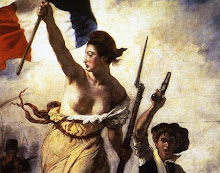From The Economist print edition
Bachelet picks a new strongman
WHEN she took office as Chile's president almost two years ago, Michelle Bachelet promised to be a different kind of politician, one who would lead a “citizens' democracy”. Her first cabinet contained only two members with previous ministerial experience; half of its members were women and several were independents. Three reshuffles later, on January 8th, Ms Bachelet unveiled her latest team, one stuffed with seasoned party figures.
That smacks of near-desperation. Broadly speaking, Chile remains a success story. Ms Bachelet has some achievements, such as an agreement on education reform, new child-care centres and wider health care. But she is much less popular than she was, and her government has found it hard to shake off a sense of drift.
The economy no longer outperforms its neighbours, despite record copper revenues. High energy prices—Chile imports almost all its oil and gas—have contributed to a blip in inflation. A new transport scheme in Santiago, designed under her predecessor, has brought misery for commuters. Not all of this is the president's fault. But she has been both hesitant and meddling, and has often allowed a small cabal of personal advisers to overrule and undermine ministers.
The reshuffle is a fresh start, she said. But it was a clumsy one. After weeks of delay, her hand was forced by the sudden resignation of her interior minister. His replacement, Edmundo Pérez Yoma, is a plain-speaking and experienced Christian Democrat who as defence minister in the 1990s oversaw the departure as army commander of General Augusto Pinochet, the former dictator. He is expected to act as a de facto prime minister—if the president lets him. The changes weaken the position of Andrés Velasco, the ultra-orthodox finance minister, several of whose protégés have lost their jobs. Mr Pérez Yoma criticised him last year for lacking “imagination and boldness”.
The reshuffle is in part an attempt to shore up Soledad Alvear, the leader of the Christian Democrats (DC), one of three main parties in the centre-left Concertación coalition, which has ruled Chile since the return of democracy in 1990. The DC suffered a serious split last month, when supporters of Ms Alvear, who is a potential presidential candidate, expelled Adolfo Zaldívar, a senator who led the party's right wing. Several of his senior followers departed too. As a result, the Concertación has lost its majority in Congress.
It has also lost much of its discipline and energy. Municipal elections are due in October, which in turn will mark the start of campaigning for the next presidential election in December 2009. Although the right has not won a presidential vote in Chile for half a century, many in the Concertación fear that after almost two decades in power their time is nearly up. The risk for Ms Bachelet and Mr Pérez Yoma is that this defeatism could become self-fulfilling. They have their work cut out.
That smacks of near-desperation. Broadly speaking, Chile remains a success story. Ms Bachelet has some achievements, such as an agreement on education reform, new child-care centres and wider health care. But she is much less popular than she was, and her government has found it hard to shake off a sense of drift.
The economy no longer outperforms its neighbours, despite record copper revenues. High energy prices—Chile imports almost all its oil and gas—have contributed to a blip in inflation. A new transport scheme in Santiago, designed under her predecessor, has brought misery for commuters. Not all of this is the president's fault. But she has been both hesitant and meddling, and has often allowed a small cabal of personal advisers to overrule and undermine ministers.
The reshuffle is a fresh start, she said. But it was a clumsy one. After weeks of delay, her hand was forced by the sudden resignation of her interior minister. His replacement, Edmundo Pérez Yoma, is a plain-speaking and experienced Christian Democrat who as defence minister in the 1990s oversaw the departure as army commander of General Augusto Pinochet, the former dictator. He is expected to act as a de facto prime minister—if the president lets him. The changes weaken the position of Andrés Velasco, the ultra-orthodox finance minister, several of whose protégés have lost their jobs. Mr Pérez Yoma criticised him last year for lacking “imagination and boldness”.
The reshuffle is in part an attempt to shore up Soledad Alvear, the leader of the Christian Democrats (DC), one of three main parties in the centre-left Concertación coalition, which has ruled Chile since the return of democracy in 1990. The DC suffered a serious split last month, when supporters of Ms Alvear, who is a potential presidential candidate, expelled Adolfo Zaldívar, a senator who led the party's right wing. Several of his senior followers departed too. As a result, the Concertación has lost its majority in Congress.
It has also lost much of its discipline and energy. Municipal elections are due in October, which in turn will mark the start of campaigning for the next presidential election in December 2009. Although the right has not won a presidential vote in Chile for half a century, many in the Concertación fear that after almost two decades in power their time is nearly up. The risk for Ms Bachelet and Mr Pérez Yoma is that this defeatism could become self-fulfilling. They have their work cut out.

No hay comentarios:
Publicar un comentario